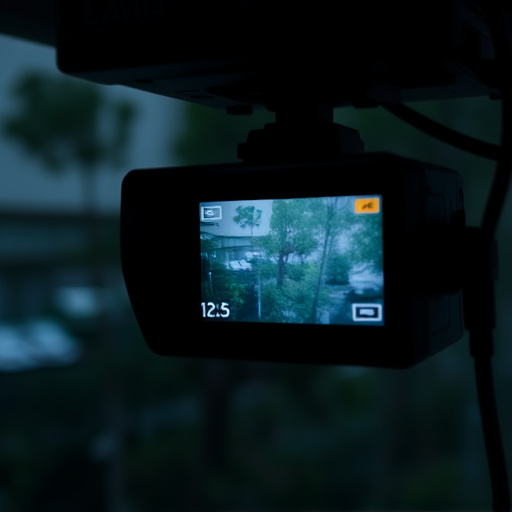Tenants renting properties must be aware of undetectable wireless security cameras installed by landlords in everyday objects like light switches and power sockets, raising significant privacy concerns. Proactive measures include regular checks, caution when signing agreements, understanding legal rights, tenant education, stricter regulations, and routine inspections to protect renters' rights from advanced surveillance technology.
In today’s digital age, privacy concerns have reached new heights, especially within rental properties. This article explores the hidden world of secret surveillance spots in rentals and the growing prevalence of undetectable wireless security cameras. We’ll guide you through uncovering hidden camera locations, discussing wireless technology that evades detection, common areas where surveillance may hide, and the legal implications of such practices. By understanding these aspects, tenants can protect their privacy, while property owners gain valuable insights into maintaining secure living spaces.
- Uncovering Hidden Camera Locations in Rentals
- Wireless Technology: Cameras You Can't Detect
- Common Areas: Potential Surveillance Spots
- Smart Devices: Tools for Rental Property Owners
- Legal Implications of Secret Surveillance in Rentals
Uncovering Hidden Camera Locations in Rentals
When renting a property, it’s crucial to be aware that undetectable wireless security cameras could be installed, hidden away in plain sight. Landlords often use these tiny, sophisticated devices to monitor their tenants’ activities, raising significant privacy concerns. These cameras can blend seamlessly into everyday objects like light switches, power sockets, or even fake fire alarms, making them nearly impossible for the average person to detect.
The presence of such hidden cameras has prompted tenants to become more vigilant and proactive in ensuring their spaces remain private. Regularly checking electrical outlets, noticing unusual fixtures, and being cautious when signing rental agreements can help individuals identify potential surveillance equipment. It’s essential for renters to know their rights and understand the legal implications of secretly installed cameras, empowering them to take necessary actions to protect their privacy if such devices are discovered.
Wireless Technology: Cameras You Can't Detect
Undetectable wireless security cameras have emerged as a modern-day concern for tenants worldwide, adding an unseen layer of surveillance to their living spaces. These sophisticated devices leverage advanced wireless technology to transmit footage discreetly, often with features like motion detection and night vision. What makes them particularly insidious is their ability to operate without the occupants’ knowledge—a silent observer in every room.
The proliferation of these undetectable cameras highlights a significant gap in rental property security standards. Landlords and property managers must be proactive in educating tenants about their rights and the potential risks, fostering transparency. Additionally, implementing stricter regulations and routine inspections could help mitigate this growing concern, ensuring that privacy remains a fundamental right for all renters, even as technology continues to evolve.
Common Areas: Potential Surveillance Spots
Common areas within rental properties can often serve as strategic locations for undetectable wireless security cameras, providing a sense of security for both landlords and tenants. These spaces, typically accessible to everyone, may include hallways, lobbies, and common living areas like kitchens or laundry rooms. Given their high foot traffic, these areas offer optimal opportunities to monitor entry points, detect unauthorized access, and prevent potential security breaches.
Landlords may be tempted to install wireless cameras in these common areas for increased surveillance, but it’s crucial to ensure they are positioned discreetly. Undetectable wireless security cameras designed with advanced technology can blend seamlessly into the environment while capturing high-quality footage, ensuring privacy isn’t compromised and any potential issues can be quickly addressed.
Smart Devices: Tools for Rental Property Owners
Smart Devices have become a powerful tool for rental property owners, offering a range of benefits from remote access to real-time monitoring. One of the most discreet and effective solutions is the use of Undetectable Wireless Security Cameras. These innovative devices can be seamlessly integrated into any home, providing homeowners with constant visual surveillance without compromising aesthetics or privacy.
With their wireless design, these cameras offer unparalleled flexibility in placement, allowing owners to keep an eye on common problem areas like entry points, common areas, and high-value assets. Many modern smart cameras also feature advanced functionalities such as motion detection, night vision, and two-way audio, ensuring that rental properties are secure and well-maintained at all times.
Legal Implications of Secret Surveillance in Rentals
The deployment of undetectable wireless security cameras in rental properties raises significant legal concerns. While landlords have a legitimate interest in securing their investments and ensuring tenant safety, they must navigate a complex web of privacy laws. In many jurisdictions, installing hidden surveillance equipment without explicit consent from tenants is a clear violation of civil liberties. Such practices can lead to severe legal repercussions, including fines and damage to the landlord’s reputation.
Tenants have the right to expect a certain level of privacy within their rental units. Secret surveillance cameras, designed to be imperceptible, undermine this trust and can create an atmosphere of unease and suspicion. In case of malfeasance or disputes, it is crucial for landlords to rely on legal and ethical means of gathering evidence, ensuring transparency and adherence to the law. This includes obtaining proper authorization, providing clear notice of surveillance measures, and respecting individual privacy rights.
In today’s digital era, understanding the potential for secret surveillance in rental properties is crucial. By being aware of common spots like common areas and smart devices that could house undetectable wireless security cameras, tenants can take proactive steps to protect their privacy. Conversely, property owners should be educated on legal implications and consider employing legitimate security measures to maintain a safe and trustworthy environment.
